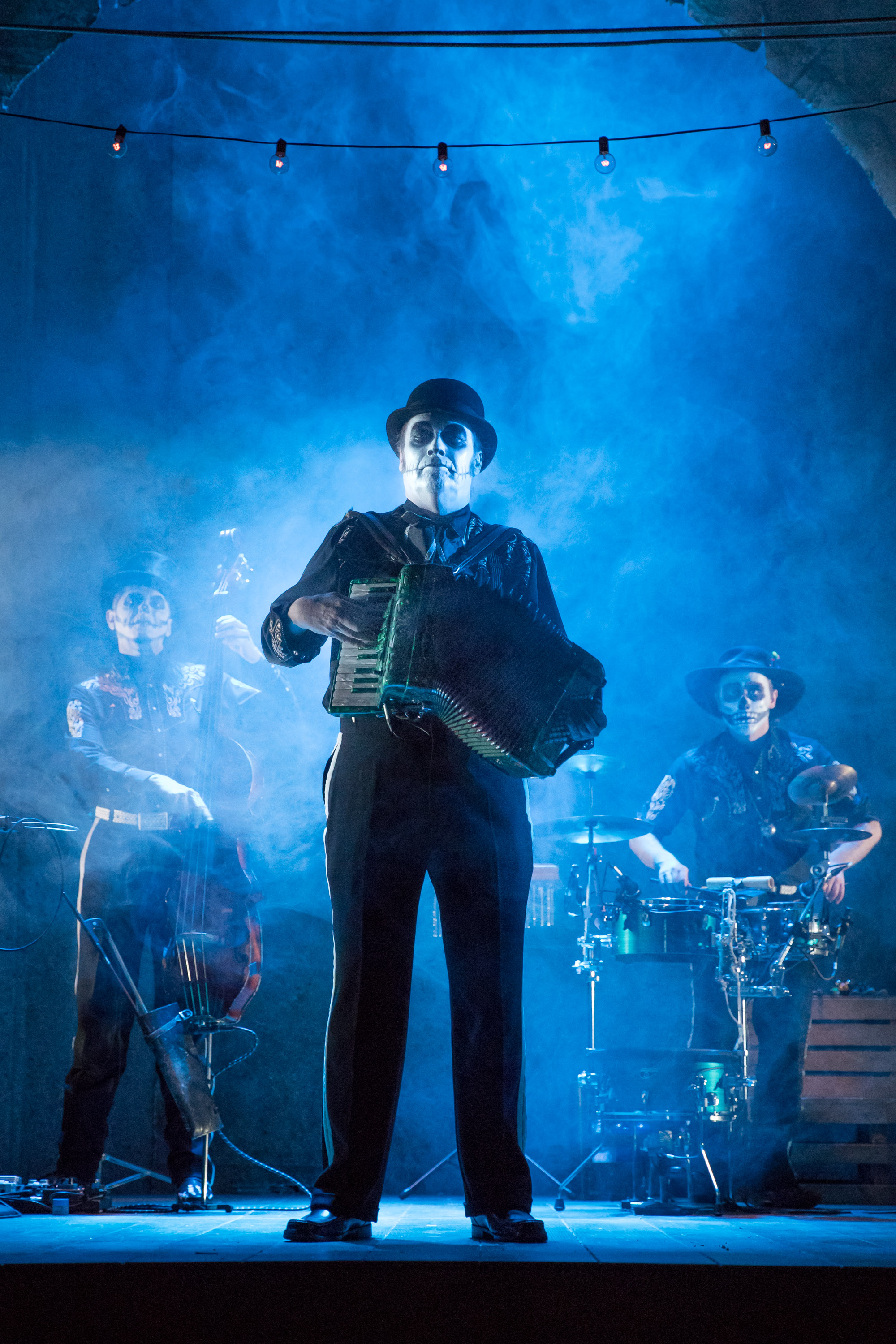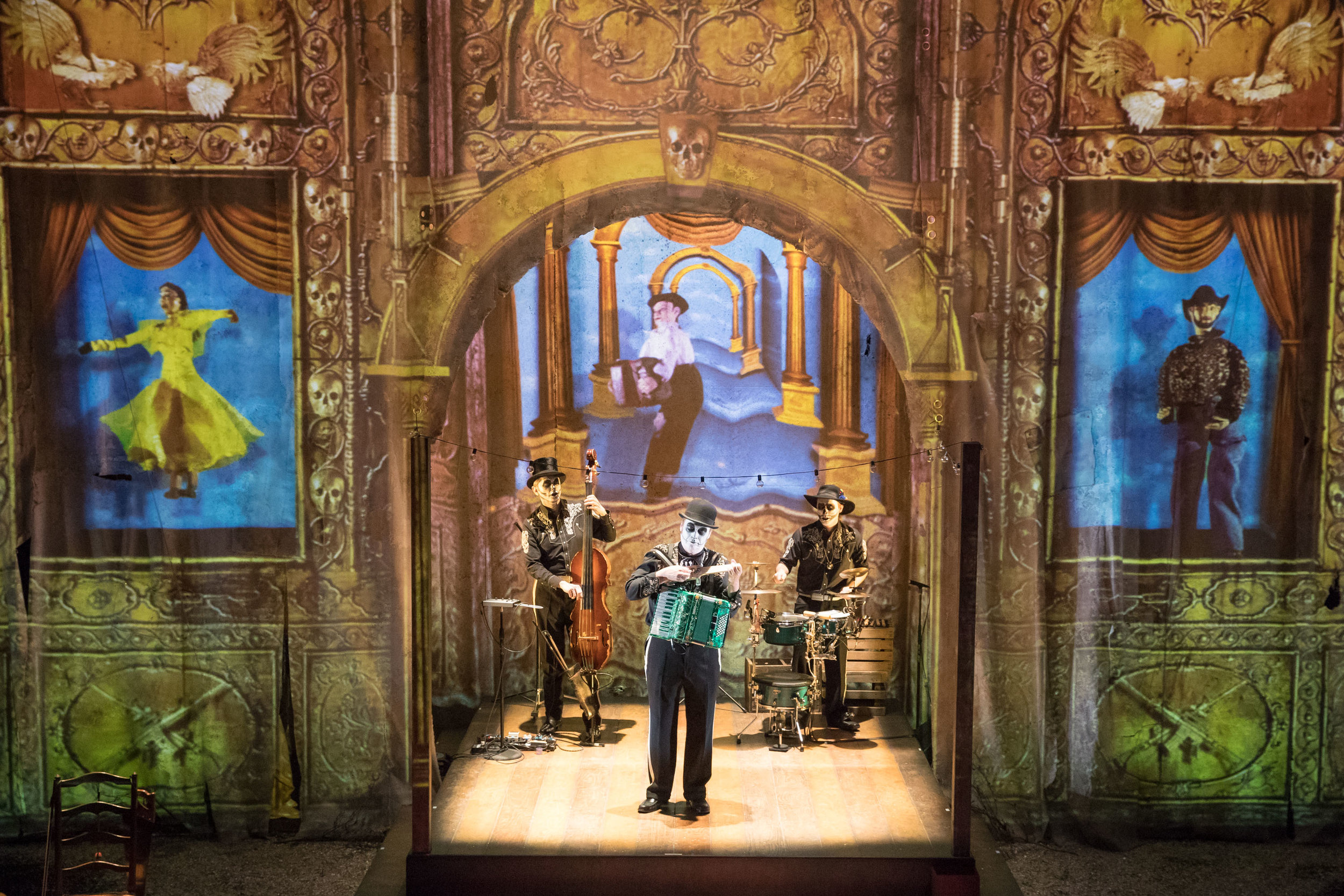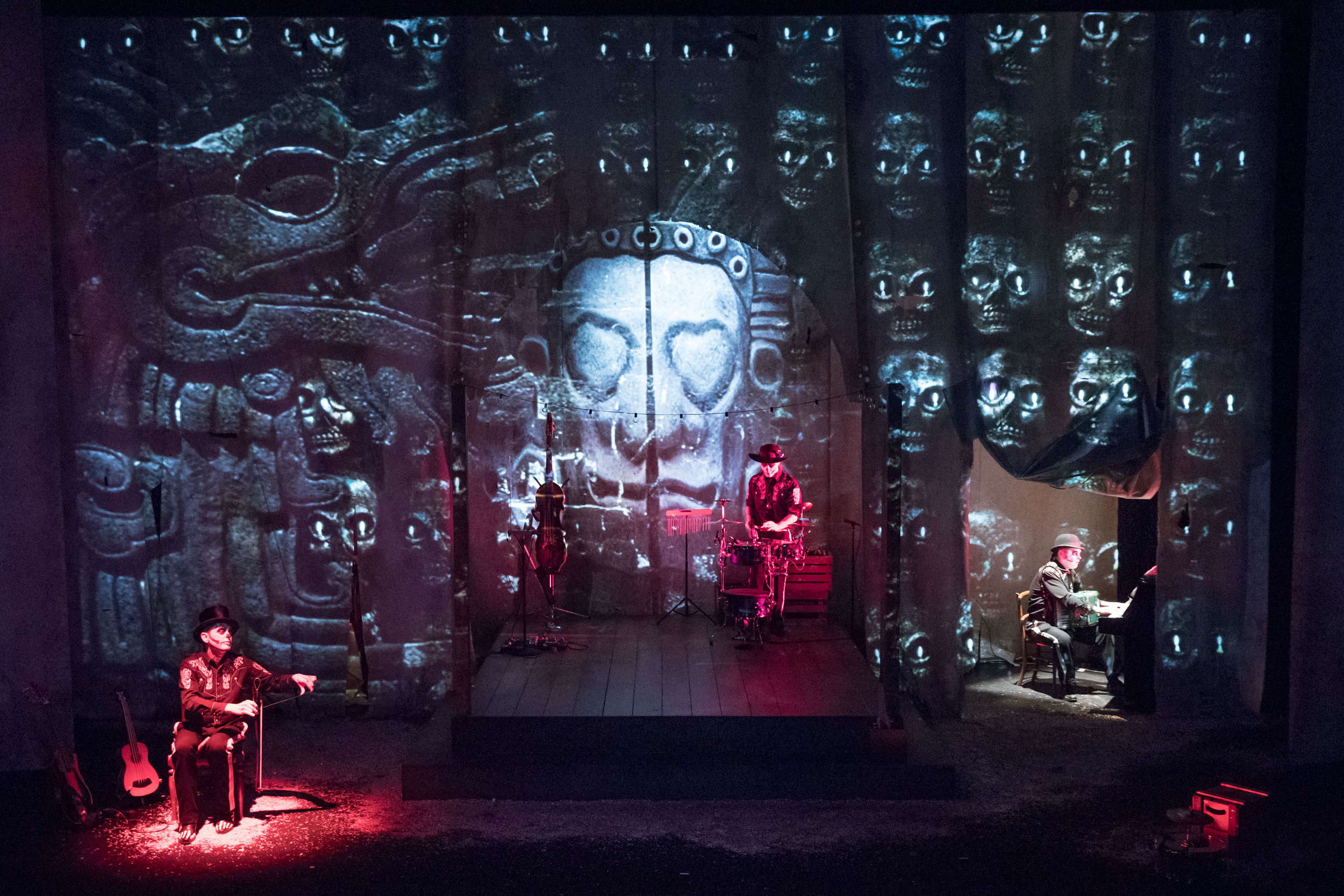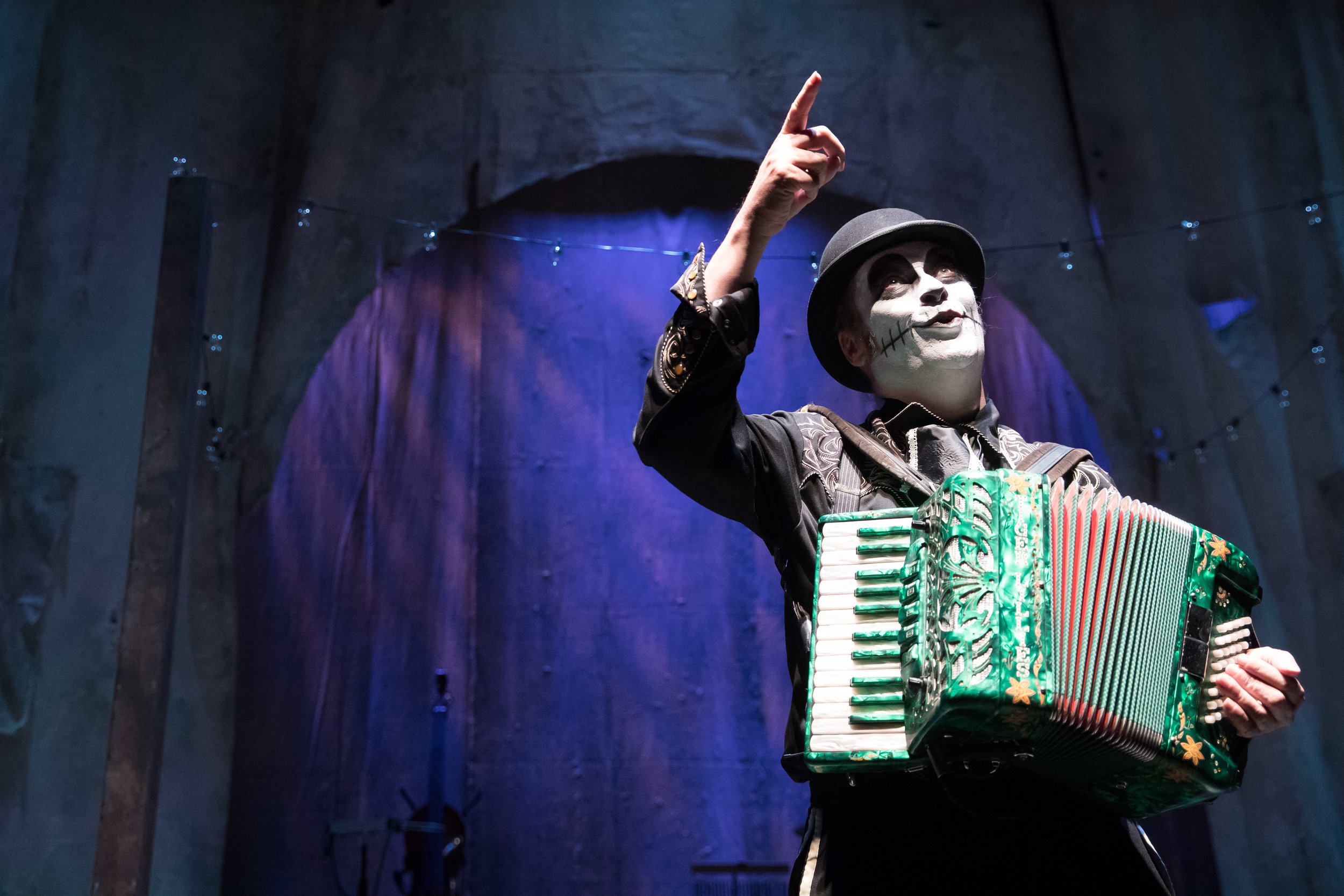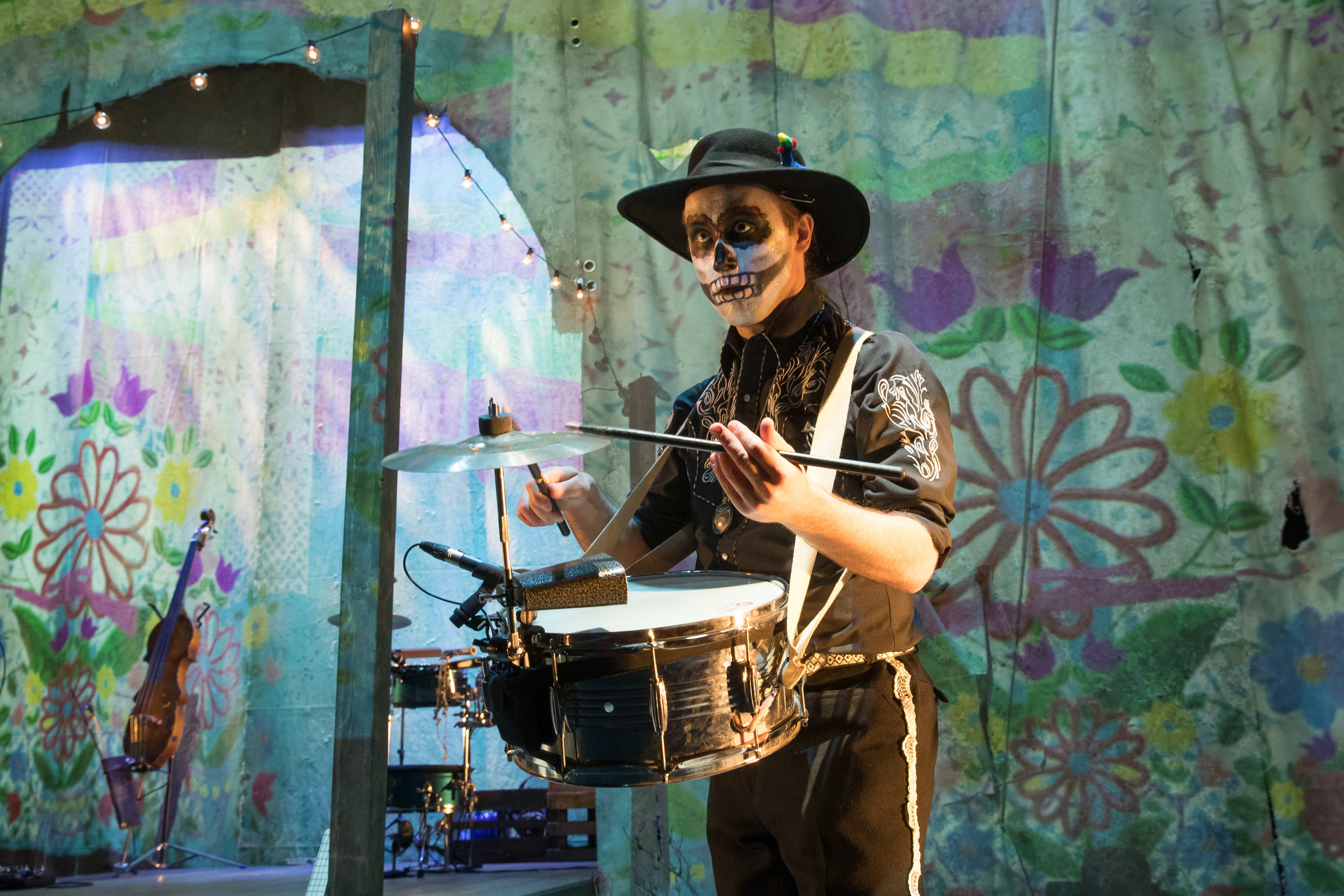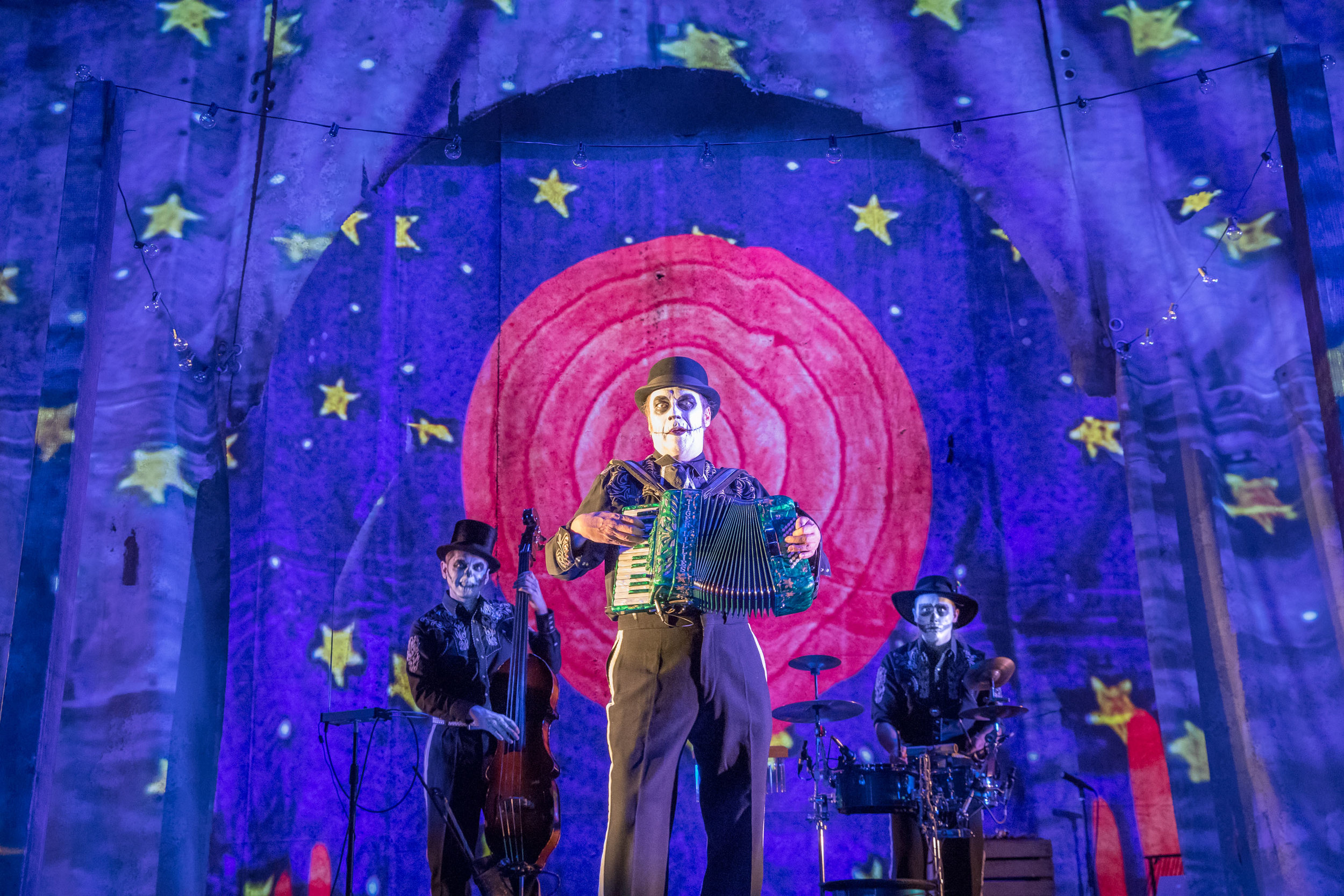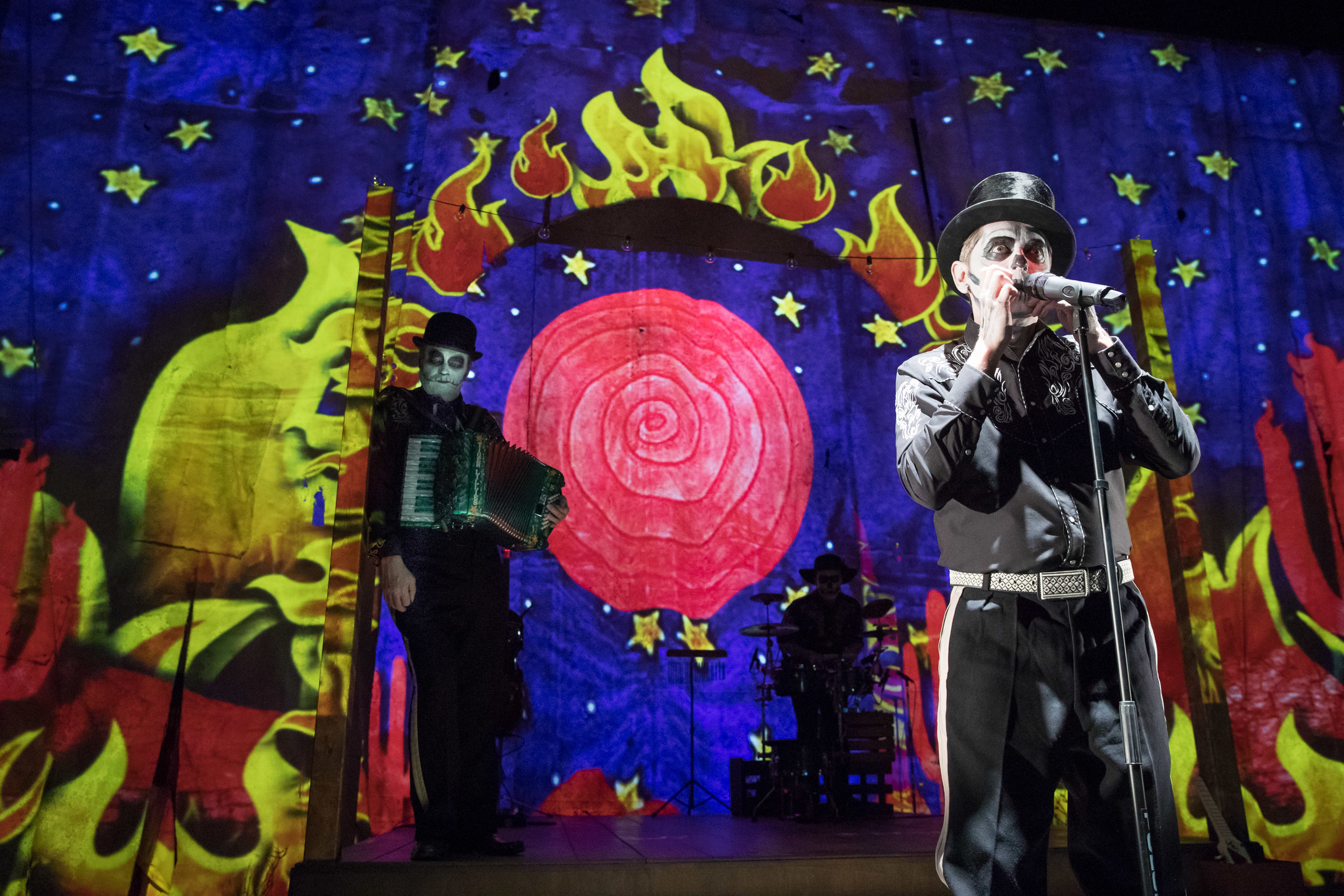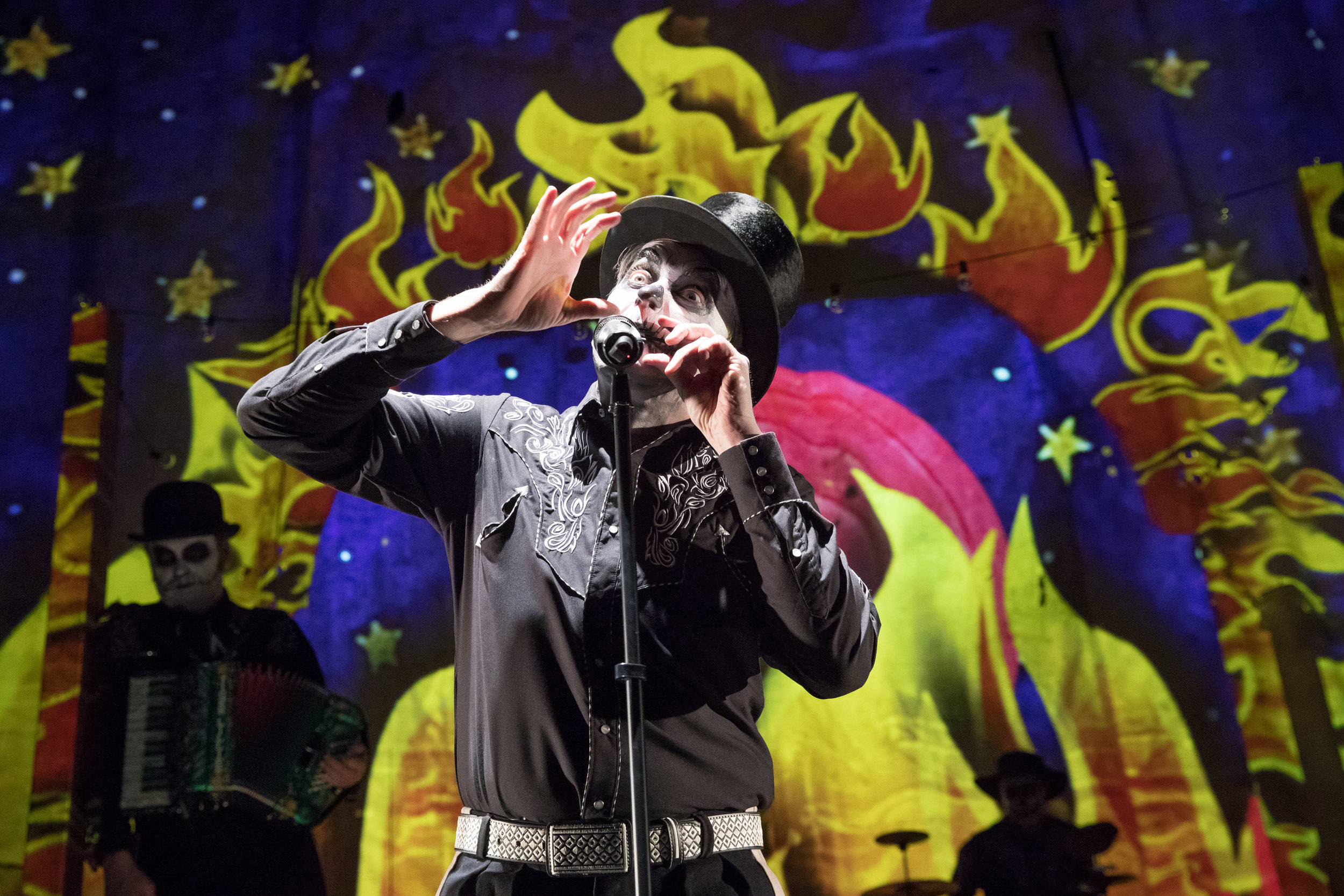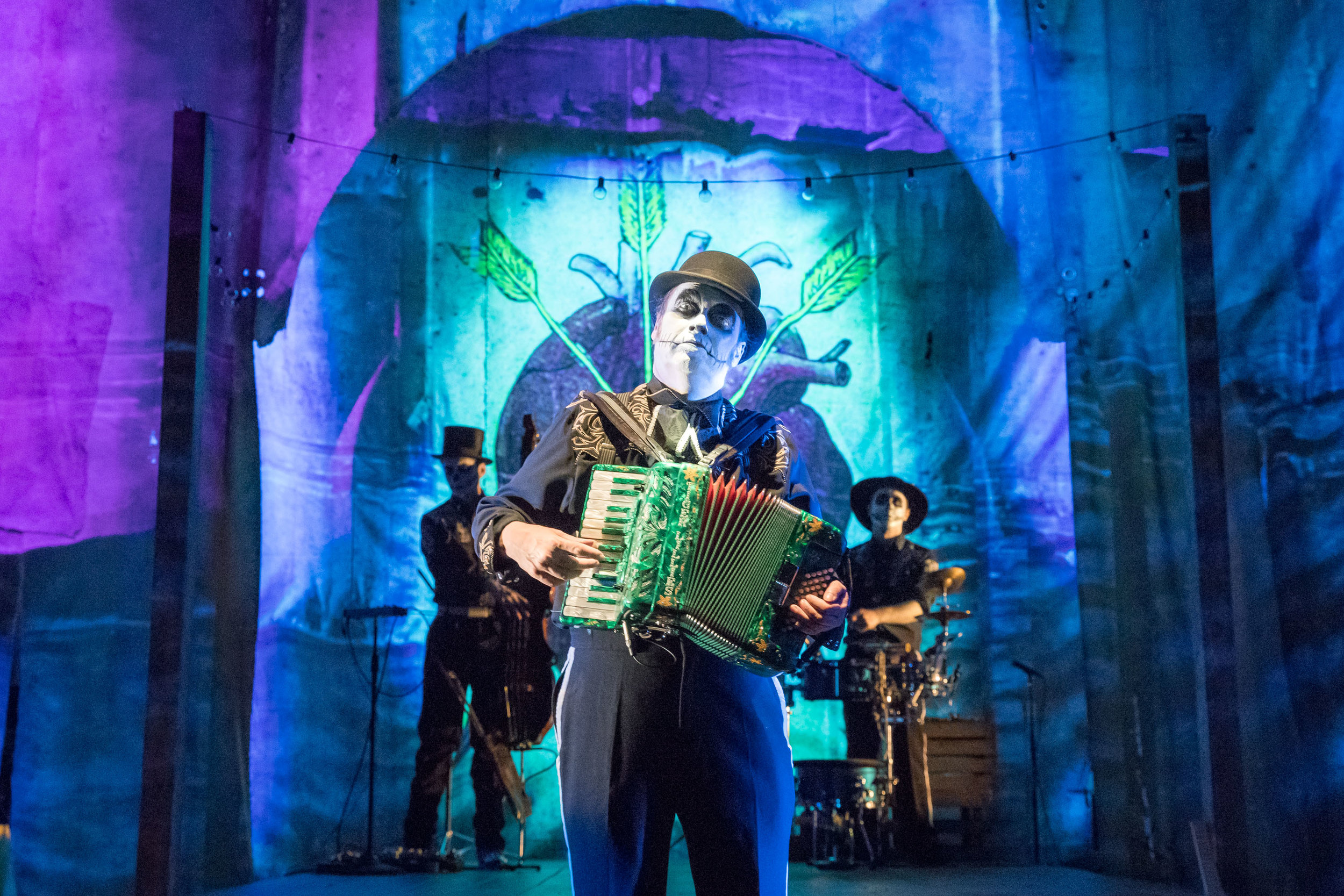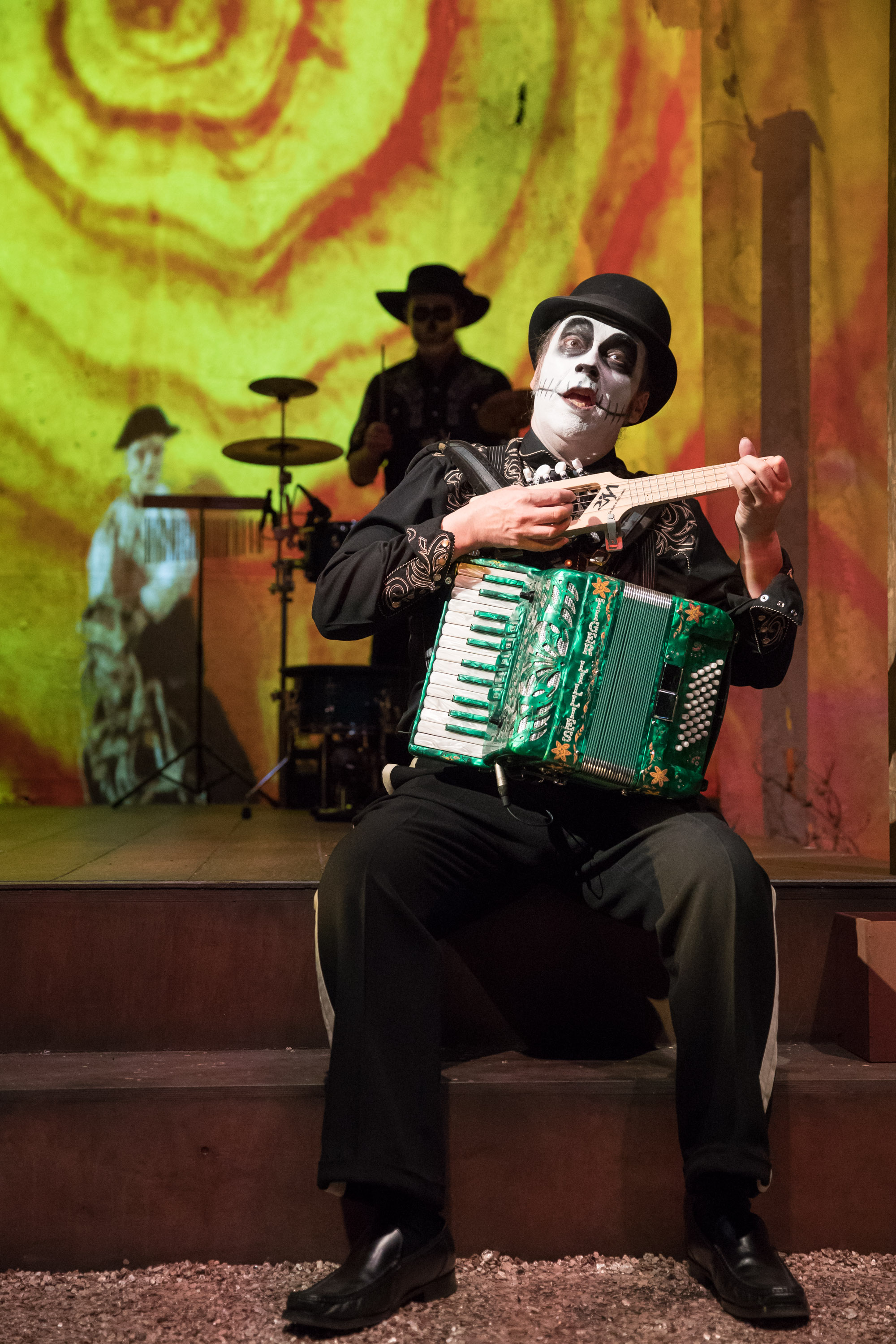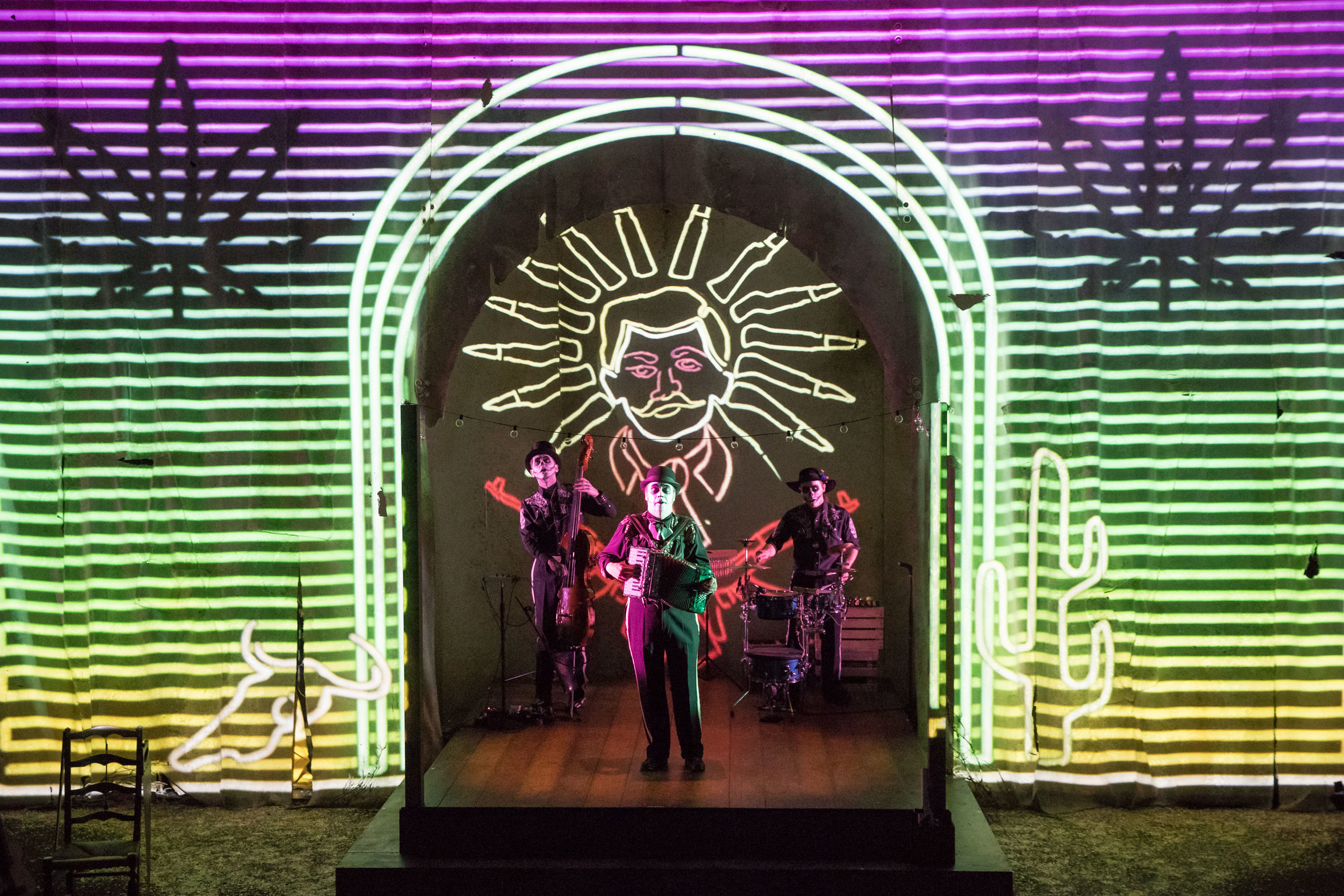Review: The Tiger Lillies present Corrido de la Sangre
Three men, eleven instruments, one psychedelic puppet show projection.
Billed as "The Godfathers of Alternative Cabaret", The Tiger Lillies take to the stage to tell the story of Maria: a Mexican woman who escapes the clutches of the cartels and of the devil himself. This production is primarily a concert, showcasing the band’s unusual musical stylings and mastery of sinister opera.
Part of the ¡Viva! Festival, the band enter fully made up as reincarnations on Mexico’s iconic ‘Dia de los Muertos’ [Day of the Dead]. From this ominous perspective, they go on to tell a sinister tale of all things surreal, spiritual and political, as they tentatively toe the line with reality.
The unusual combination of sounds is mesmerising; I couldn’t help but tap my toe and smile. One needn’t be an connoisseur of this musical genre to admire some of the instrumental prowess on show. The accordion, bass and drums form the basis for The Tiger Lillies’ characteristic core sound; yet, employing handmade instruments, such as the ukulele bass, to deliver unique resonance make this band stand out even further than their distinctive appearance. What’s more, shrewd use of a theremin and waggleboard provide atmospheric background, which truly transforms this concert into a piece of theatre. I’ve never seen a man play a “mouth harp” before and, judging by the concoction of awe and laughter that rippled around the audience, I wasn’t alone.
Each of the band members brings a separate characterisation to the show. On percussion, Jonas Golland is the strong, silent type, maintaining an ominous, wide-eyed stare throughout. Adrian Stout, as purveyor of all manner of bizarre instruments, lopes around the stage, delivering his storytelling snippets with a suave air of undeniable coolness. And the group is fronted by the enthralling Martin Jacques, whose stylised Berkovian face-pulling marks him as the shrill theatrical leader of the pack. In these roles, the band offer a welcome level of theatrical variation.
Particular musical highlights include the ballad of the Devil and the darkly comic song that documents the band’s own death. Backed by monochromatic marionettes of their skeletons, complete with accordion and all, this climactic song is emphatically emoted, whilst compounded by visually striking and eerily funny imagery.
Complementing the sung storytelling, the show is punctuated by excerpts from Astrid Hadad, as the ghostly, passionate voiceover of Maria herself. These intrusions bring both the Spanish voice and real politicised humanity to the tale, preventing it from being just a well-structured album review.
Sewing the production seamlessly together, the varied video projections, courtesy of Mark Holthusen, are entrancing. They frame the action and provide a feast for the senses, bringing a distinct element of Monty Python-esque surreal animation. Saving the performance from the risk of too much similarity, the backdrop combines puppetry with neon lights, overlapping modern art with a quaint nod to simpler times.
The show is utterly transportive, though it’s not always immediately obvious to where. The story dictates the setting as the borderlands between Mexico and the USA, but it feels rather that Corrido de la Sangre is a trip (in every sense of the word) to a colourful, cartoon cabaret.
Corrido de la Sangre plays at HOME, Manchester from 20th April until 5th May. For more information and tickets, visit their website.
Photo Credit: Jonathan Keenan.

